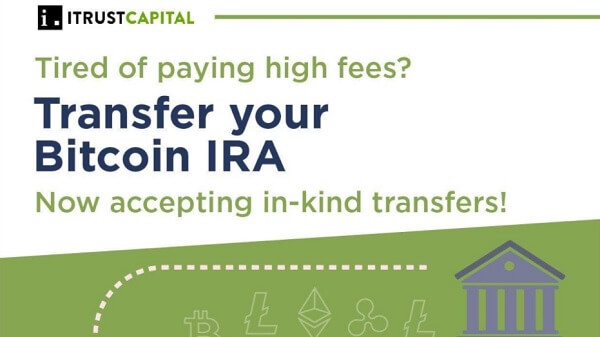
[ad_1]
In terms of price potential, Bitcoin (BTC) is staring at the possibility of outperforming Ether (ETH) in the short term.
So believes David Lifshitz, chief investment officer at ExoAlpha — a Paris-based investment management service — who noted that Bitcoin’s upside potential in the near term is higher than that of Ether’s. He said so after spotting a recent shift in the BTC/ETH ratio.
In detail, BTC/ETH compares the trend momentum of Bitcoin and Ether. A lower reading suggests that Bitcoin’s price is rising slower than Ether’s. Conversely, a higher BTC/ETH ratio indicates that the Bitcoin price momentum is gaining an edge over Ether.
Of late, Ether appeared like a heightened version of Bitcoin. When the BTC/USD exchange rate spiked, the ETH/USD exchange rate rallied but with higher margins. Similarly, when BTC/USD went down, ETH/USD plunged more.
The difference in price momentum sent the BTC/ETH ratio declining inside a descending channel range. In doing so, the ratio offered traders a way to gauge which token — Bitcoin or Ether — would return better profits in terms of short-term relative strength momentum. Lifshitz weighed:
“At the current level, the ratio suggests that BTC is underpriced vs. ETH, so an astute trader may buy Bitcoin and sell Ethereum in the same dollar proportions, betting on the potential upcoming bounce of the ratio from the lower channel bound toward the upper channel bound, and then revert later when the ratio gets close again to the upper bound.”
Ratio flattening after Musk-led crash
The comparison between Bitcoin and Ether price momentums came as the United State Federal Reserve officials announced Wednesday that they expect to start raising interest rates in 2023, earlier than the previous forecast of 2024.
Bitcoin and Ether’s first reaction to the Fed news was negative. The BTC/USD exchange rate closed the day 4.51% lower, while ETH/USD went down by 6.91%. In comparison, on May 19, after Elon Musk had launched a tweet war against Bitcoin, BTC/USD fell 14.29% and ETH/USD by 27.61%.
The readings pointed that the dramatic difference between Bitcoin and ETH price momentums started flattening after the May 19 crash. Lifshitz called it as yet another sign that Bitcoin would become more valuable than Ether.
He said:
“Over the last three weeks, the ratio of BTC/ETH relative prices seems flat, and if we take a closer look at the last few days, the ratio is getting higher, meaning that BTC tends to become more valuable than ETH.”

Meanwhile, Lifshitz reminded that the BTC/USD ratio’s relief bounce would do little in offsetting the descending channel pressure. Therefore, the ratio may continue to head lower after it tests the channel’s upper range.
Bitcoin, Ether trade setups
The scale of Bitcoin and Ether’s next trends — whether upside or downside — depends on their idiosyncratic technical and fundamental factors.
Lifshitz said Bitcoin, which remains range-stuck between $33,000 and the $39,000–$40,000 area, would need to break above $42,000 to confirm a short-term bullish bias. In doing so, the benchmark cryptocurrency could rise to $50,000, a level coinciding with the local bottoms of April 26 and May 12.

But for a bullish move to happen, the executive added that Bitcoin miners would need to exhaust their selling or be convinced that they would later sell their BTC reserves at higher prices. Meanwhile, dip buyers and institutional investors, such as MicroStrategy, would provide further upside tailwinds to the $50,000 price target.
“And of course, in the middle of this battle between bulls and bears, there’s Elon Musk tweet-factory, being one time supportive of Bitcoin, one time not, which shakes the price each time,” Lifshitz reminded.
As for Ether, Lifshitz expected the cryptocurrency to surge to $2,850 in the coming sessions. It is the same level that ETH hit before popping up higher on May 3; meanwhile, it also served as resistance as ETH attempted to recover fully from its May 19 price bottom.

Ether bulls continued to grapple with a symmetrical triangle indicator on the flip side and its tendency to send prices further lower. Symmetrical triangles are continuation patterns. Therefore, they tend to send the prices in the direction of their previous trends.
“As the price approaches the apex of that triangle, some resolution is expected either up or down from the $2,500 level,” said Lifshitz.
Meanwhile, one big takeaway from both Bitcoin and Ether charts concerned their volumes. While BTC/USD reported higher trading volumes after the May 19 price crash, Ether’s were more or less the same.
“This comforts the potential reverse of power between Bitcoin and Ether,” Lifshitz stressed.
[ad_2]
Source link





 Bitcoin
Bitcoin  Ethereum
Ethereum  Tether
Tether  XRP
XRP  Solana
Solana  USDC
USDC  Dogecoin
Dogecoin  TRON
TRON  Cardano
Cardano
Be the first to comment